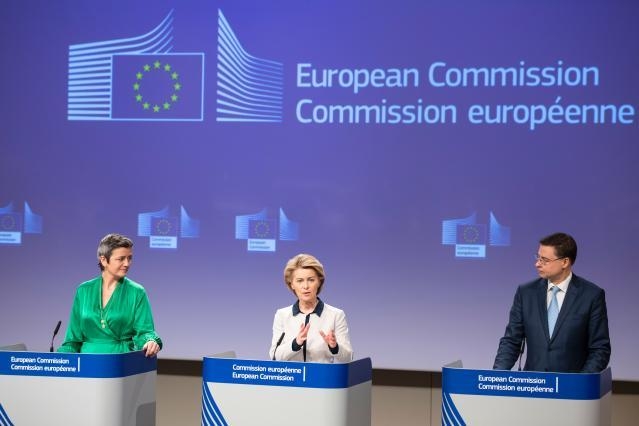Cohesion Policy funding and the EU Solidarity Fund will play a central role in the Coronavirus Response Investment Initiative. The initiative announced by President Ursula von der Leyen last week seeks to mobilise all existing EU budget resources to provide financial support to Member States for their immediate response to the Coronavirus crisis and its long-term impact. This includes advancing payments, redirecting cohesion funds and assisting Member States in channelling money where is most ne
Cohesion Policy and EU Solidarity Fund contribute to the Coronavirus Response Investment Initiative
- 16 March 2020

Cohesion Policy funding and the EU Solidarity Fund will play a central role in the Coronavirus Response Investment Initiative. The initiative announced by President Ursula von der Leyen last week seeks to mobilise all existing EU budget resources to provide financial support to Member States for their immediate response to the Coronavirus crisis and its long-term impact. This includes advancing payments, redirecting cohesion funds and assisting Member States in channelling money where is most needed as quickly as possible. To make money available for fighting the crisis, the Commission is proposing to mobilise quickly cash reserves from the European Structural and Investment Funds (ESIF) – the EU's cohesion money. This will provide immediate liquidity to Member States' budgets. The will help to frontload the use of the as yet unallocated EUR 37 billion of cohesion policy funding within the 2014-2020 cohesion policy programmes, thus providing a much needed boost to economic investments. The Commission is also making all Coronavirus crisis related expenditure eligible under cohesion policy rules. It will also be applying the rules for cohesion spending with maximum flexibility, thus enabling Member States to use the funds to finance crisis-related action. This also means providing greater flexibility for countries to reallocate financial resources, making sure the money is spent in the areas of greatest need: the health sector, support for SMEs, and the labour market. Finally, the Commission is proposing to enlarge the scope of the EU Solidarity Fund – the EU tool to support countries hit by natural disasters – to support Member States in this extraordinary situation. The overarching objective is to use the full portfolio of funding options under the EU budget to support EU Member States - with maximum flexibility, minimum additional administrative work and as quickly as possible.
More information:
